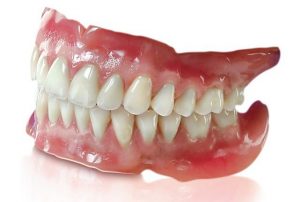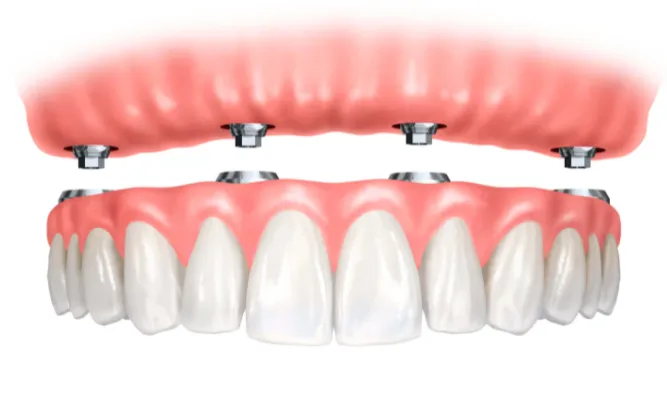What is the Best False Teeth to Get?
Understanding False Teeth
False teeth, also known as dentures or dental prosthetics, are removable appliances that are used to replace missing teeth. They are designed to restore the appearance and functionality of natural teeth, allowing individuals to chew, speak, and smile confidently. When it comes to selecting the best false teeth, several factors need to be considered to ensure optimal comfort, aesthetics, and durability.
Types of False Teeth
1. Full Dentures
Full dentures are recommended when all the natural teeth in the upper or lower jaw are missing. They consist of a flesh-colored acrylic base that sits on the gums and supports a complete set of replacement teeth. Full dentures can be conventional or immediate. Conventional dentures are made and placed after the remaining teeth are removed and the gum tissues have healed, which usually takes several weeks. Immediate dentures, on the other hand, are made in advance and can be placed immediately after tooth extraction. While immediate dentures offer the advantage of not having to go without teeth during the healing period, they often require more adjustments as the gums and bones shrink over time.
2. Partial Dentures
Partial dentures are used when only some of the natural teeth are missing. They consist of replacement teeth attached to a pink or gum-colored plastic base, which is connected to a metal framework that holds the denture in place. Partial dentures not only fill in the gaps left by missing teeth but also prevent the remaining natural teeth from shifting. They can be removable or fixed. Removable partial dentures can be taken out for cleaning, while fixed partial dentures, also known as dental bridges, are cemented in place and can only be removed by a dentist.

3. Implant-Supported Dentures
Implant-supported dentures are a popular alternative to traditional removable dentures. They are secured in place by dental implants, which are titanium posts that are surgically placed into the jawbone. These implants act as anchors for the denture, providing increased stability and preventing bone loss in the jaw. Implant-supported dentures are considered to be the most comfortable and functional option for those who have sufficient jawbone density and are willing to undergo a minor surgical procedure.
Choosing the Best False Teeth
1. Comfort
Comfort is paramount when choosing false teeth. Ill-fitting dentures can cause sore spots, difficulty speaking, and discomfort while eating. To ensure optimal comfort, it is essential to have your dentures custom-made by a qualified dentist or prosthodontist. They will take precise measurements and create a denture that fits your mouth shape and size accurately. Regular dental check-ups are also crucial to ensure that your dentures continue to fit well over time.
2. Aesthetics
The appearance of false teeth plays a significant role in the overall satisfaction of denture wearers. The color, shape, and size of the replacement teeth should closely resemble the natural teeth and complement the individual’s facial features. Working closely with a skilled dentist or prosthodontist who has expertise in creating natural-looking dentures can help achieve the desired aesthetic outcome.
3. Durability
Dentures are subject to wear and tear due to regular use. It is important to choose materials that are durable and can withstand the pressures of daily activities like eating and speaking. High-quality acrylic resins and strong metals are commonly used in the fabrication of dentures to ensure durability. Discussing the durability options with your dentist and considering factors such as your lifestyle and habits can help determine the best materials for your false teeth.
4. Stability
Stability is crucial for a comfortable and functional denture experience. Traditional removable dentures can sometimes become loose or shift while eating or speaking, causing discomfort and embarrassment. If stability is a concern, implant-supported dentures offer a superior solution. By anchoring the denture to dental implants, they provide a secure fit and eliminate the worry of slippage or shifting, allowing for better chewing efficiency and speech clarity.

5. Maintenance and Care
Proper maintenance and care are essential to extend the lifespan of false teeth and maintain oral health. Regular cleaning of dentures is necessary to prevent the buildup of plaque and bacteria. Dentures should be brushed daily with a soft-bristle toothbrush or denture brush and soaked in a denture cleaner or mild soapy water. It is important to follow the specific care instructions provided by your dentist to avoid damaging the dentures or compromising their fit and function. For a denture dentist in burwood read on.
6. Cost
Cost is another important factor to consider when choosing false teeth. The price of dentures can vary depending on several factors, including the materials used, the complexity of the case, and the expertise of the dental professional. It is advisable to consult with your dentist and discuss the available options, including any insurance coverage or financing plans that may be available to help manage the cost of your false teeth.
Conclusion
Choosing the best false teeth requires careful consideration of several factors, including comfort, aesthetics, durability, stability, maintenance, and cost. Working closely with a skilled dentist or prosthodontist is crucial in ensuring that you receive custom-made dentures that fit well, look natural, and provide optimal functionality. Whether you opt for full dentures, partial dentures, or implant-supported dentures, selecting the right type of false teeth can significantly improve your quality of life by restoring your smile and confidence.
Remember, it is essential to prioritize regular dental check-ups to maintain the health and proper fit of your false teeth over time. By considering all these factors and making an informed decision, you can find the best false teeth that meet your specific needs and enhance your overall oral well-being.





